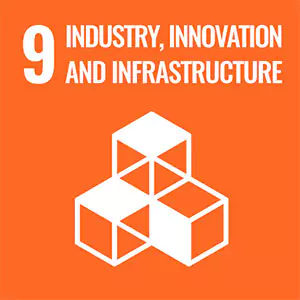MSc Macromolecular Materials
The master's programme in Macromolecular Materials provides the skillset to lead the development of future sustainable fibre and polymer-based materials. You will attain an in-depth understanding of the relationships between molecular structure and macromolecular and material properties, coupled with extensive practical experience. Our courses let you specialise in pulp and paper technology, advanced health care, energy production, bio-based composites, surface coatings and circular materials.

Macromolecular Materials at KTH
As a student in the master's programme in Macromolecular Materials, you will learn about the design, synthesis, characterisation, production and development of polymer and fibre-based materials. You will acquire the knowledge and skills to manage the selection of raw materials (renewable versus fossil), choice of production processes, material combinations and manufacturing methods to achieve the desired characteristics of the finished product. We greatly emphasise environmental issues, such as environmentally-friendly material production and the development of sustainable materials.
The programme provides a solid base in the chemistry and physics of organic materials, as well as their connection to real-life applications. The broad range of courses gives you a generalist’s knowledge and at the same time allows you to customise your degree profile to focus on your areas of interest. The programme also establishes excellent laboratory skills and is closely linked to research at the Department of Fibre and Polymer Technology. Throughout the courses, you’ll also develop skills in problem-solving, teamwork, and oral and written presentations.

This is a two-year programme (120 ECTS credits) in English. Graduates are awarded the degree of Master of Science. The programme is mainly offered at the KTH Campus in Stockholm by the School of Engineering Sciences in Chemistry, Biotechnology and Health (at KTH).
Degree project
In the final semester you will complete a master’s degree project at KTH, a research institute, company or university in Sweden or abroad.”Topics previously explored include lifetime predictions of commodity plastics, design of biobased adhesives, synthesis of sustainable polymers, fibre-solution interactions, regenerated cellulose, microplastics, nanocomposites, 3D-printing, and materials for biomedical applications.
Courses in the programme
The courses in the programme cover topics such as Polymer chemistry and physics, biofiber chemistry, pulp and paper chemistry and technology, materials in a circular economy, polymeric materials, fibre technology and biomedical materials.
Courses in the programme Macromolecular Materials
Future and career
Graduates from the programme have broad and international career opportunities. Advanced fibre and polymer technology skills, combined with a clear environmental focus, provide an excellent basis for various careers in industry, government agencies and academia. Graduates from the master's programme are very attractive for many industries such as paper and forest, plastics, medical technology, pharmaceutical, coating, adhesive, and packaging. Material expertise is also needed in many other sectors, including transport and electronics. Demand for specialists in fibre and polymer materials is set to grow strongly. For example, Europe’s engineering materials market is expected to more than double by 2031, and the global sustainable materials sector is projected to triple by 2034—showing the clear need for the expertise gained in this programme.
Programme graduates are found in traditional Swedish industry, small start-ups, consultant companies, governmental institutions, research institutes and universities. Employers of graduates include Stora Enso, Holmen, Volvo Cars, IVL, AstraZeneca, Becker, Scania, Nynäs, BillerudKorsnäs, ABB, Pfizer, PRV, and RISE. After graduation, you can expect to take on roles such as project leader for development and production, research and development engineer, quality assurance engineer, consultant, project manager, product specialist and process engineer. Graduates are also well-prepared for further studies as PhD students at KTH or other renowned universities worldwide.
Sustainable development
Graduates from KTH have the knowledge and tools for moving society in a more sustainable direction, as sustainable development is an integral part of all programmes. The three key sustainable development goals addressed by the master's programme in Macromolecular Materials are:



Students in the programme learn how to research, design, and produce environmentally friendly materials to replace many synthetic materials currently found in society. As such, contributing to a toxin-free society will improve humanity's health and well-being.
Students also learn how to develop resilient materials for infrastructure, such as composites, thermoplastics, and formulated products. Additionally, students are taught how to promote inclusive and sustainable industrialisation by creating environmentally friendly materials that foster innovations in industrial material development.
A study in fibre and polymer technology naturally involves the responsible use of materials and sustainable production. This relates to developing new materials with superior properties, which will lead to lower material consumption, a longer lifetime, and considerations of end-of-life scenarios for polymeric materials.
Faculty and research
Research at the School of Engineering Sciences in Chemistry, Biotechnology, and Health covers a broad spectrum. It includes developing solar and fuel cells and other sustainable energy sources, designing new polymers for medical applications, protecting metal surfaces from corrosion and utilising natural materials in innovative products.
The Department of Fibre and Polymer Technology conducts research on the frontiers of macromolecular material science of biopolymers, natural fibres, bio-based polymers and synthetic polymers. The research ranges from monomer and polymer syntheses and characterisation to modelling/simulation, processing, long-term properties and material performance, composites, functionalities, recycling, devices and studies of pulp and paper. Materials from renewable resources, nanostructured materials, materials for medical applications and materials for the energy field have been identified as four specific research areas of strategic importance that are closely related to the Sustainable Development Goals, ensuring relevance for our society today and in the future. Join us in creating improved materials and products for a sustainable future.
- Research carried out at the School of Engineering Sciences in Chemistry, Biotechnology and Health
- Research carried out at the department of Fibre and Polymer Technology
Faculty involved in the programme
Research stories
- Coconuts and lemons enable a thermal wood for indoor heating and cooling
- Citrus derivative makes transparent wood 100 percent renewable
- Plastic from Wood (Deutsches Elektronen-Synchrotron DESY)
- The world's strongest biomaterial
- Water purification system engineered from wood, with help from a microwave oven
- With a kitchen freezer and plant cellulose, a material for therapeutics is developed
- Repairing Bone Fractures Using High‐Performance Thiol-Ene Adhesive (video)









